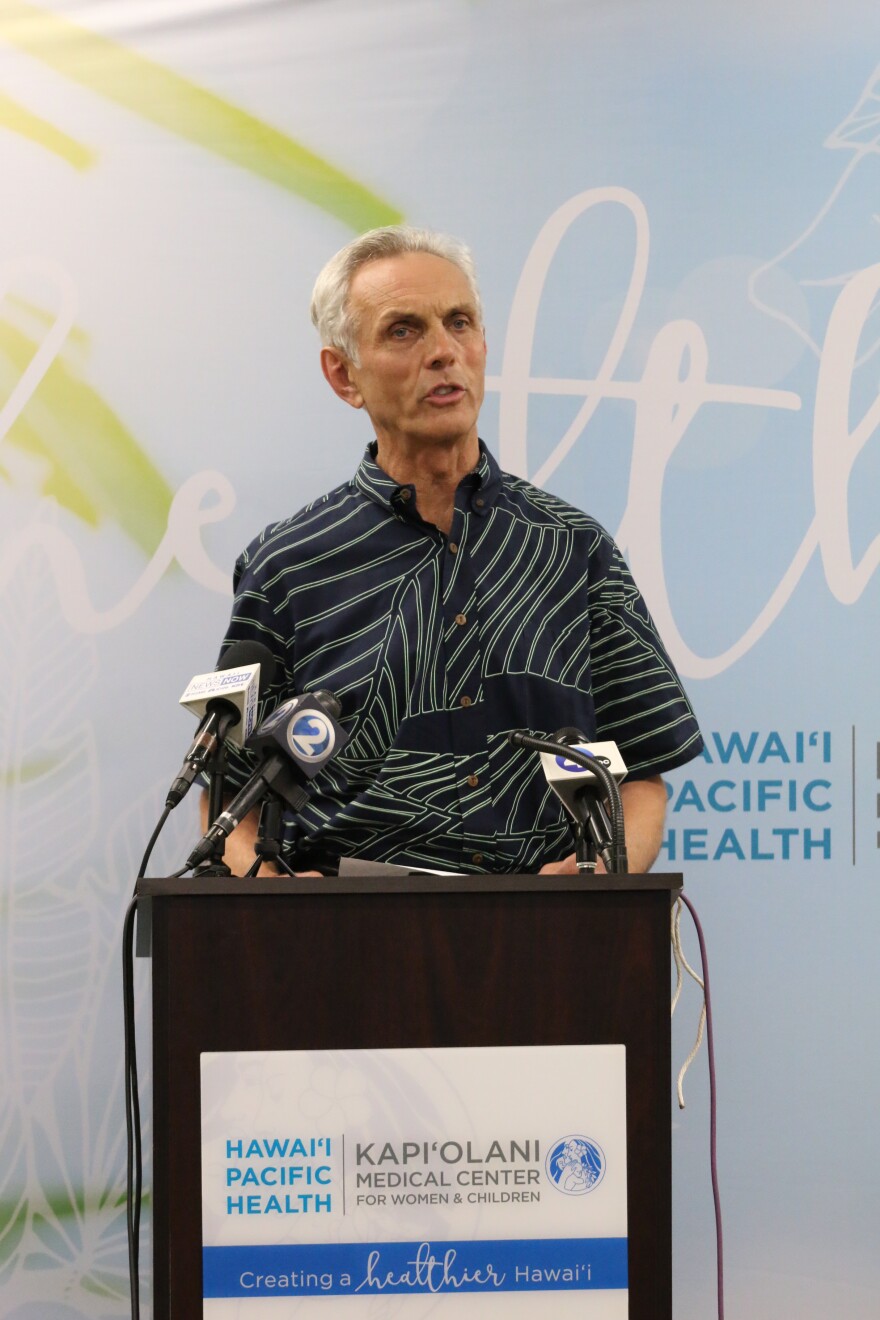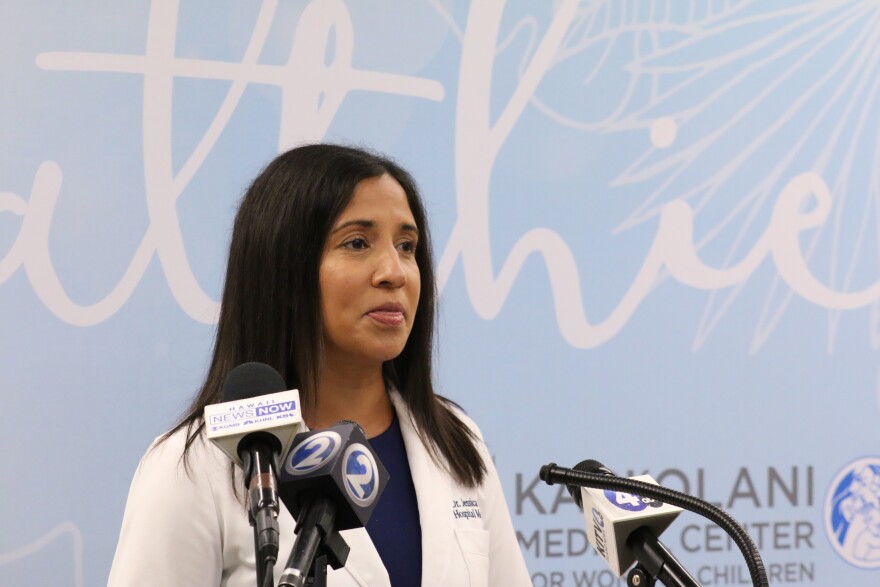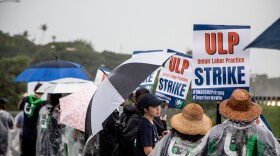More people are hospitalized across the state now than during the peaks of the Delta or Omicron COVID surges.
According to the Healthcare Association of Hawaii, 2,487 people were in Hawaiʻi’s hospitals on Thursday — and only 64 of them are because of COVID.
Hilton Raethel, president and CEO of HAH, said at the peak of the Delta surge on Sept. 10, 2021, there were 2,365 people in Hawaiʻi's hospitals.
But health officials say while the numbers are concerning, it is not time to panic.
Cases of Respiratory Syncytial Virus — also known as RSV — are increasing in Hawaiʻi and 32 other states. There are other respiratory illnesses spreading as well, including rhinovirus and coronavirus.
In most adults, RSV looks like a regular cold. But it is a much more difficult illness to manage in babies and young children, who cannot blow their noses and cannot cough up mucus effectively. With congested noses, they are unable to drink milk or formula from a bottle.
Most are pediatric cases and they are appearing in emergency rooms across the state, Raethel said. Cases include both residents and visitors. Wait times in emergency rooms are longer because of the increased cases.
Some children with more serious cases have been transported from the neighbor islands to Oʻahu for care.
There is no treatment for these types of respiratory viruses, but hospitals can provide supportive care such as providing oxygen, suctioning mucus and intravenously providing fluids if they are unable to eat or drink.
"What I just want to emphasize to families is there isn't a reason to panic. These are viruses that we're used to. These are things that our pediatrician see every day," said Dr. Jessica Kosut, division chief of pediatric hospitalists with Hawai‘i Pacific Health.

Kosut said the respiratory virus season in Hawaiʻi is usually later than in the continental U.S., from December through February. The current wave of illnesses is earlier in the season and with more severity.
"We are seeing this affecting infants and young children to about age four, which is a little bit older than we typically see with these respiratory viruses. Usually we see children up to age two really affected,” Kosut said.
Because of masking and other mitigation efforts in place for the COVID pandemic, there was less exposure to respiratory viruses in the past two years.
"I think (parents) just didn't see as many respiratory viruses during these last two seasons and now we're seeing kind of a resurgence of that," Kosut said.
The U.S. Centers for Disease Control and Prevention says this strain of RSV sees the illness peaking between five to eight days, with recovery within a two-week timeframe.
To fight the virus, Kosut recommends handwashing, getting vaccinated with COVID boosters and flu shots, staying at home when sick and masking when appropriate.
If your child is sick, Kosut says the illness can be treated at home. But contact your child's pediatrician and possibly a visit to the ER if your child is breathing quickly, not acting like themselves or unable to drink fluids — and when a NoseFrida is no longer strong enough.





